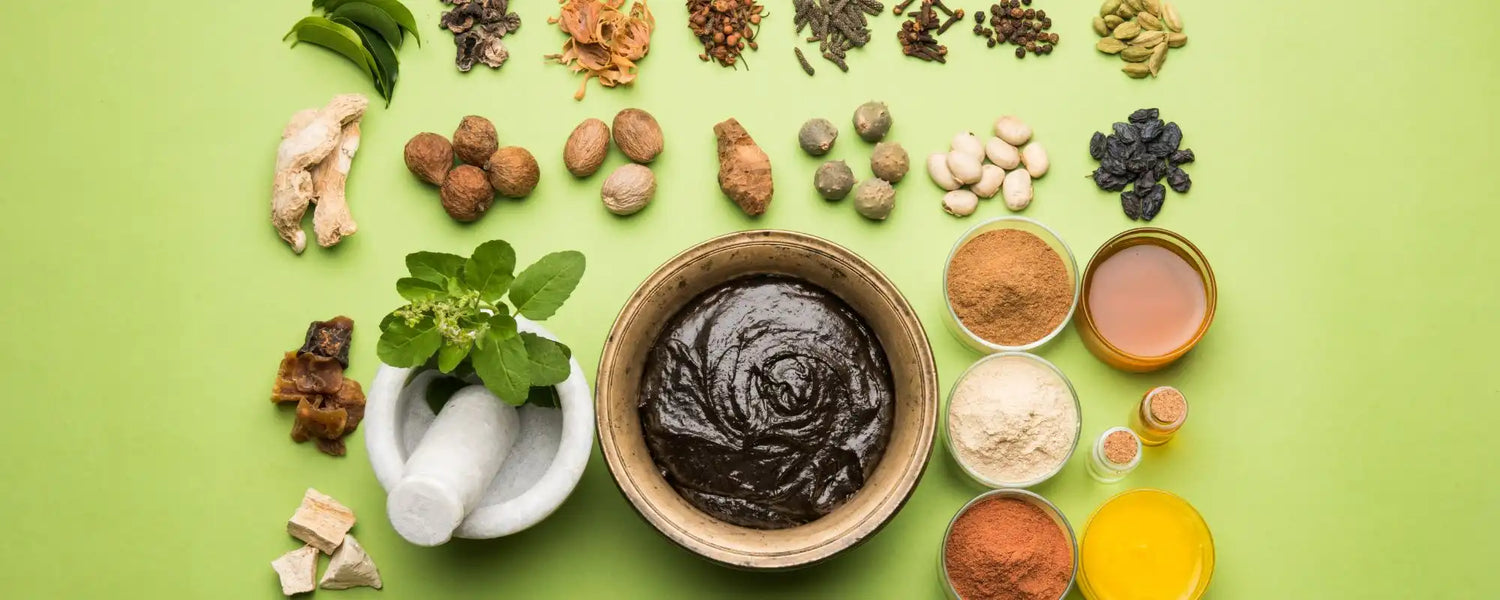Known as ‘the Golden Spice’, turmeric is known to be one of the most powerful spices in the world. The turmeric root has been used in Indian cuisine and traditional Ayurvedic medicine for thousands of years. It is famous for its vibrant yellow colour and has a warm bitter taste. Also known as Curcuma longa—a member of the ginger family, it is primarily cultivated from the rhizomes, or roots, of the flowering turmeric plant in India and other parts of Southeast Asia.
Research has shown that turmeric has powerful anti-inflammatory and antioxidant properties which can support brain and gut health, promote a healthy immune system and benefit a range of inflammatory conditions.

What is curcumin?
Turmeric is made up of bioactive compounds, collectively known as curcuminoids. Curcumin is the primary curcuminoid and the most active ingredient in turmeric. Research shows that curcumin is a powerful polyphenol with anti-inflammatory properties and the ability to increase the amount of antioxidants our body produces. Turmeric contains around 3%
curcuminoids and therefore one teaspoon of turmeric powder (about 5,000 mg) only provides about 150 mg of curcuminoids.
Many studies have shown that it is the curcumin that is responsible for many of the health benefits associated with turmeric and that taking curcumin regularly can have a wide range of benefits.

The health benefits of turmeric and curcumin
Supports your immune system
A strong and healthy immune system is essential for your body to fight invaders, such as viruses, bacteria, and foreign bodies
Studies have shown that turmeric contains excellent anti-oxidant, anti-viral and anti-microbial properties, which can help to support a healthy immune system. Research also shows it can help to regulate different signalling molecules which are essential for the functioning of a health immune system.
Relieves arthritis pain
The powerful anti-inflammatory benefits of this spice have been shown to relieve pain and swelling for numerous forms of arthritis. Inflammation in the joints can be very painful, causing swelling and restricting movement. Studies have shown that turmeric and curcumin’s powerful anti-inflammatory properties may
reduce joint pain and tenderness, cartilage degeneration and joint inflammation. In particular, research has shown that curcumin can reduce pain and improve physical function in patients with arthritis.
Reduces symptoms of Skin Inflammation
Inflammation is part of the body’s healing process. However long term chronic inflammation of the skin can lead to eczema and damage the skin.
Studies have shown that curcumin can suppress pro-inflammatory signals, which gives it powerful anti-inflammatory effects. These properties make curcumin perfectly placed to help alleviate the symptoms of eczema.
Studies have shown that curcumin can help to reduce itchiness and scaling for people with eczema.
Supports Gut Health
Our gut health is not just important for digestion but a healthy gut supports the immune system and contributes to general health and wellbeing.
Studies have shown that curcumin can have positive effects on human gut microbiota, reducing intestinal inflammation, as well as supporting diverse gut bacteria which supports a strong immune system.
Reduces muscle inflammation and soreness
Working muscles hard can often lead to damage to the muscle fibres which can cause soreness and stiffness. Muscle damage can be caused by over exertion or wrong use of a muscle. A recent study shows that groups of those provided with curcumin had a ‘measurable impact on muscle damage and recovery in 59 healthy, physically active, young adult participants after downhill running’. The findings were that those in a curcumin group ‘had significantly reduced elevation in creatine kinase levels, which are elevated when there is muscle damage’ and ‘Self-reported pain scores were significantly reduced as well in curcumin groups compared to placebo groups.’

Turmeric and black pepper
Turmeric and curcumin are poorly absorbed by the human body on their own. Pairing turmeric with black pepper extract known as piperine can increase the bioavailability and absorption. Proper absorption of turmeric has been shown to enhance curcumin absorption by up to 2,000%. This means that you should add some black pepper whenever you are cooking with turmeric, or make sure you choose a turmeric or curcumin supplement that contains piperine.





